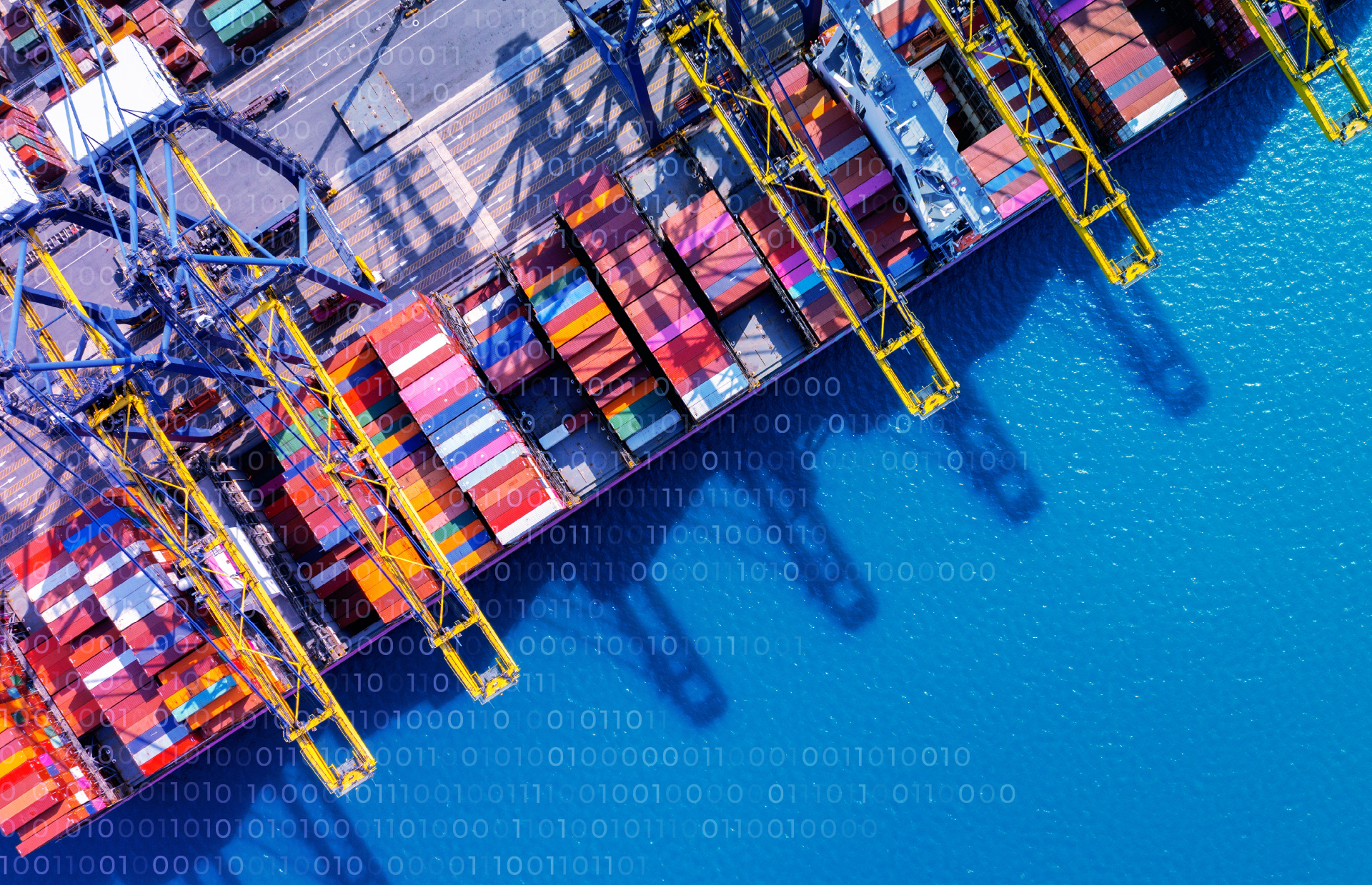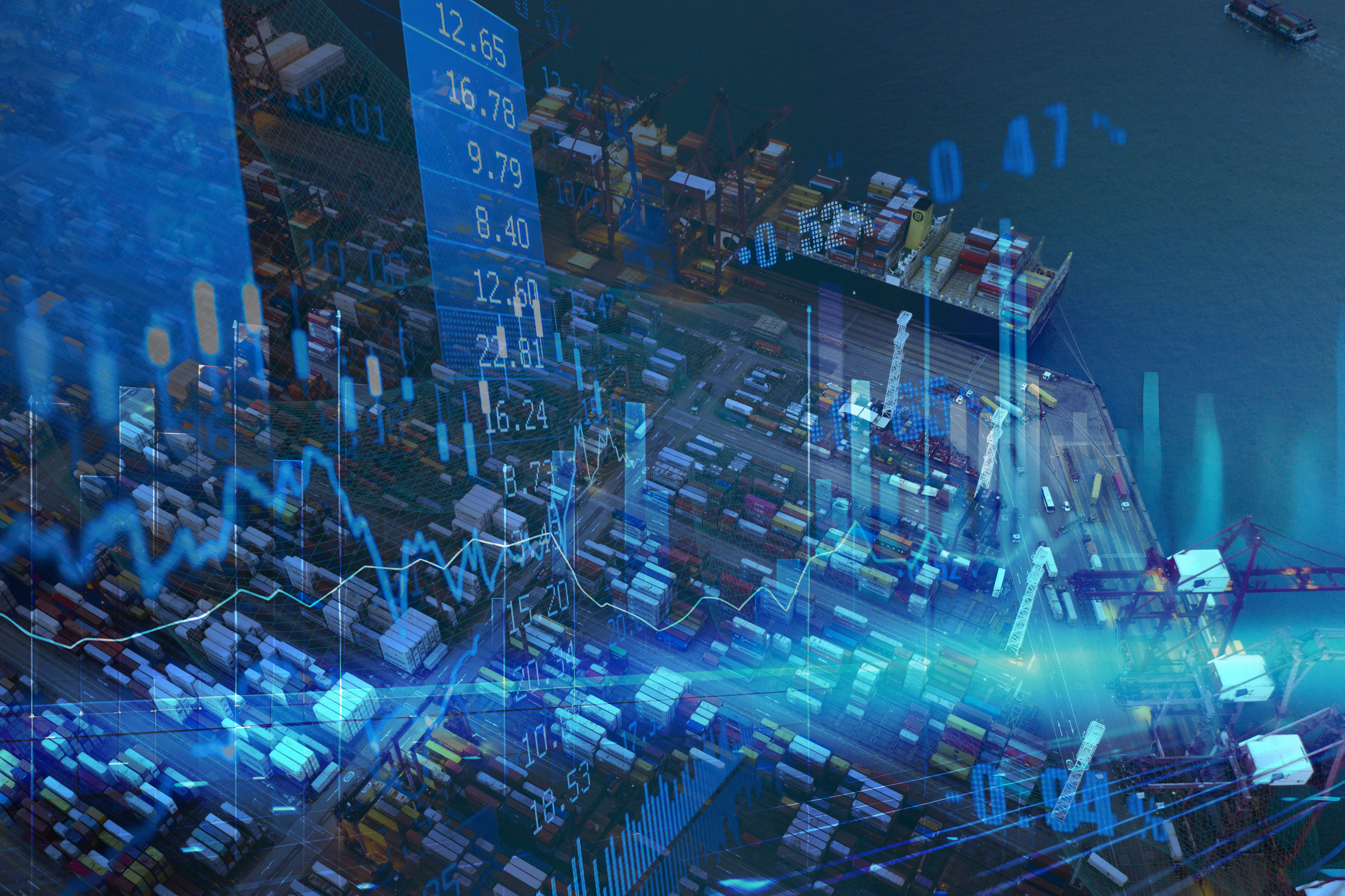
Freights rates are falling fast on Asia-Europe routes via the Cape of Good Hope. Shipping companies are now operating at below break-even levels on these routes.
The fourth quarter of 2024 promises to be a difficult one for the shipping companies in terms of profitability. FAK spot rates for cargo loaded on Asia-North Europe routes going round the Cape of Good Hope, which is currently the most used itinerary, are below the USD3,000/40' mark.
Upply's freight rate index for Asia-Europe routes, which merges spot and contract rates, also shows a marked fall from August on.

Source : Upply Freight Index
The Asia-Europe market, which is of great importance to the shipping companies, is starting to crack at the worst time, just as the annual contract negotiations are starting to get into full swing and 2025 service schedules are being drawn up without any convincing improvement in quality having been offered to date.
It had been expected that shipping companies' profitability would come under pressure, but this had been expected to happen at a later date, sometime next year.
1/ Why has the Asia-Europe/Cape of Good Hope market started to collapse so suddenly?
- European demand is still going in the wrong direction. Current cargo volumes are at mediocre levels at all the shipping companies surveyed, and reservations-based forecasts for the full fourth quarter indicate that there will be change in the situation in the short term.
- Fresh capacity is continuing to come on to the market, with, on Asia-Europe routes, too many giant new vessels.
- Shippers no longer believe that service quality will be restored. They want, therefore, to buy space at the lowest possible price, even though they know sometimes that carriers are operating at a loss.
- The Cape of Good Hope route is now part of the normal functioning of the Asia-Europe container shipping market. The disruption affecting the Suez Canal does not figure in the negotiations between shipping companies and shippers since it no longer generates any surprise or associated market tension.
2/ Will the turnabout in the market cause the shipping companies to lose money in 2024?
At this point, we consider that the shipping companies will remain in profit in 2024 for two major reasons:
- Asia-Europe routes apart, other east-west routes and north-south markets, although they are under pressure, are continuing to make money. On transpacific routes, in particular, the shipping companies are still able to make a profit of around USD2,000 per container at the moment.
- The results obtained by the shipping companies during the first three quarters should be enough to enable them to increase their net income by about 10%, even taking account of the decline they are experiencing in the current quarter.
3/ What can the shipping companies do to improve freight rate levels on Asia-Europe routes?
- At this stage, unless there is an unforeseeable major event like a pandemic, war or climate catastrophe, we cannot see that anything will stop the freight rate collapse on Asia-Europe routes.
- Resuming use of the Suez Canal could improve freight rates a little but the risks are too great. It is not at all sure that shippers would agree to this and the shipping companies would be liable if they exposed the merchandise in their care to known risks, given that the Red Sea is still officially recognised by the international institutions as a war zone.
- Take half of the biggest container vessels (+20,000 TEU) out of service to redress the balance between supply and demand. The shipping companies are not allowed to do this in a concerted fashion and the likelihood of them doing it concurrently without concertation is low.
- Take out of operation a large proportion of the ships which are over 18 years old.
4/ Which companies can weather the storm?
When conditions get rough, MSC generally does better than average. The company has been designed from the start to face adversity, thanks to its size and tight control of its operating costs, which are still among the lowest on the market, thanks partly to the extensive installation of scrubbers on its ships. Moreover, the company currently controls a large part of the value chain, since it relies on its own port terminals, whereas its competitors remain too dependent on outside service providers.
With the impending reconfiguration of the shipping alliances, MSC is the only shipping company which, with assistance from ZIM in the transpacific market, is able to offer under its own name, a planet-wide liner network. Unless its growth is obstructed by state or other comparable bodies, nothing looks likely to halt the company's steamroller-like progress. Moreover, it is entering the battle with comfortable financial reserves, which it was able to amass during the Covid period and which it has not finally drawn on much since then. This is less the case with its direct competitors, like CMA CGM.
In France, where the political debate is currently focused on the question of whether or not to tax CMA CGM's exceptional profits, there is an urgent need to explain to parliament and public opinion that our national shipping champion, after having helped the country to deal with sensitive economic problems involving such companies as Brittany Ferries, Gefco, Bolloré and Neoline, could soon find itself facing heavy headwinds in its turn.
In the shipping business, the wheel turns quickly. Yesterday's victories offer no protection against tomorrow's setbacks. It is for this reason that, to survive, one always needs to be big, and, if possible, the biggest. This philosophy and strategic vision, which was adhered to by Jacques Saadé while he was at the helm of CMA CGM, is once again proving its pertinence as 2025 approaches, with the great difficulties it is expected to bring, given the sharp deterioration in market fundamentals.

Jérôme de Ricqlès
Shipping expert
Our latest articles
-
Subscriber 3 min 13/02/2026Lire l'article -
2025 review of air cargo and outlook for 2026
Lire l'article -
Outlook 2026: Stable growth and rising risks
Lire l'article


